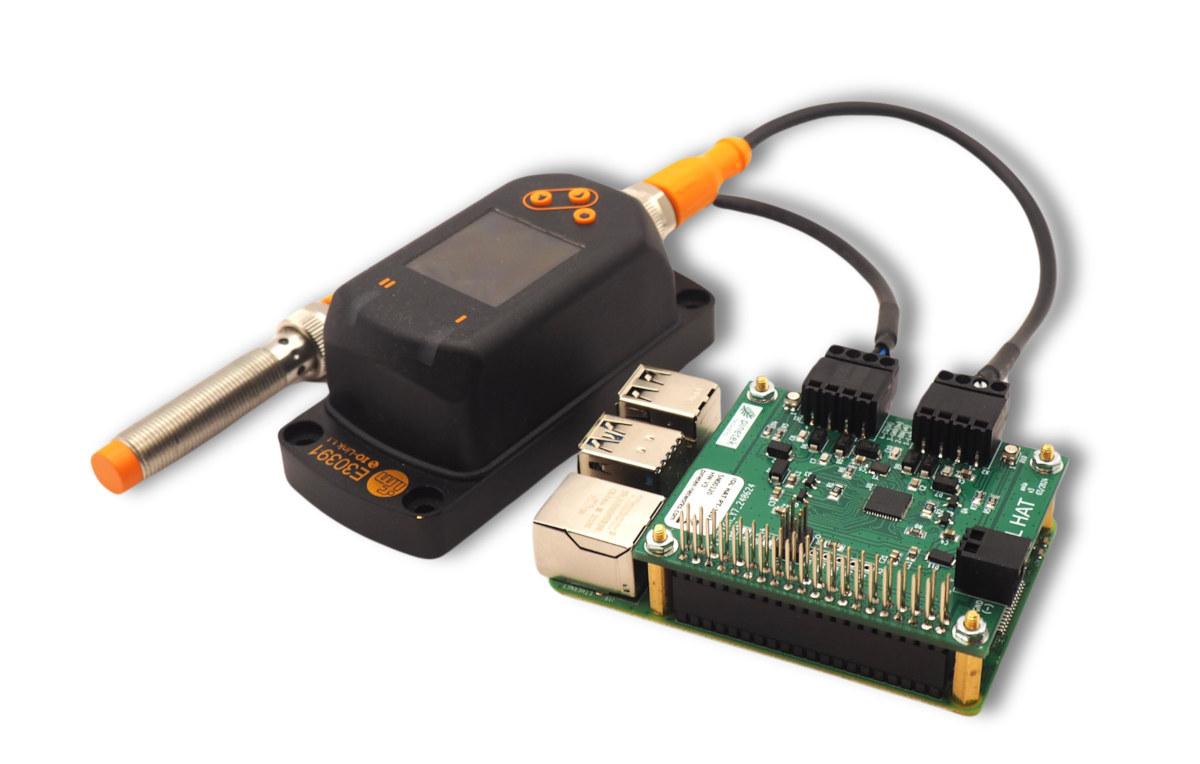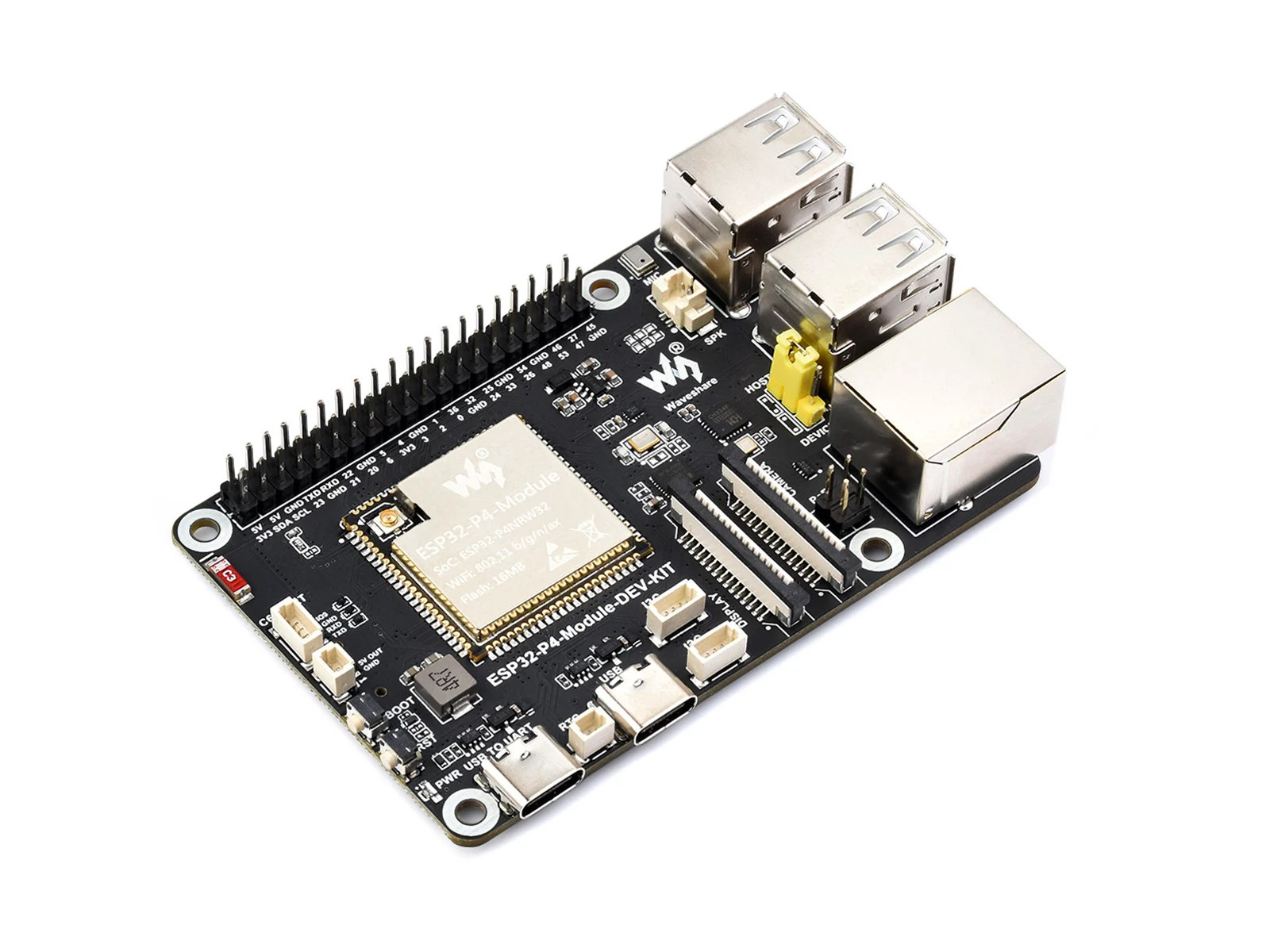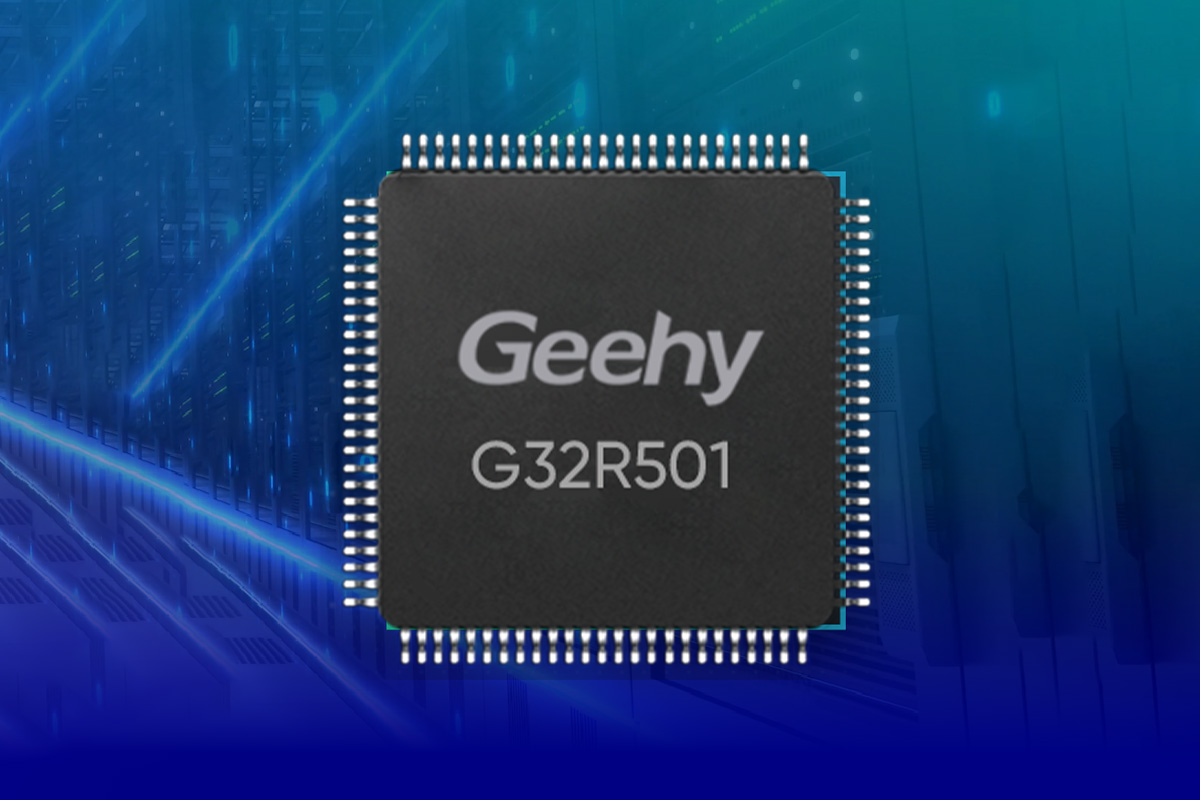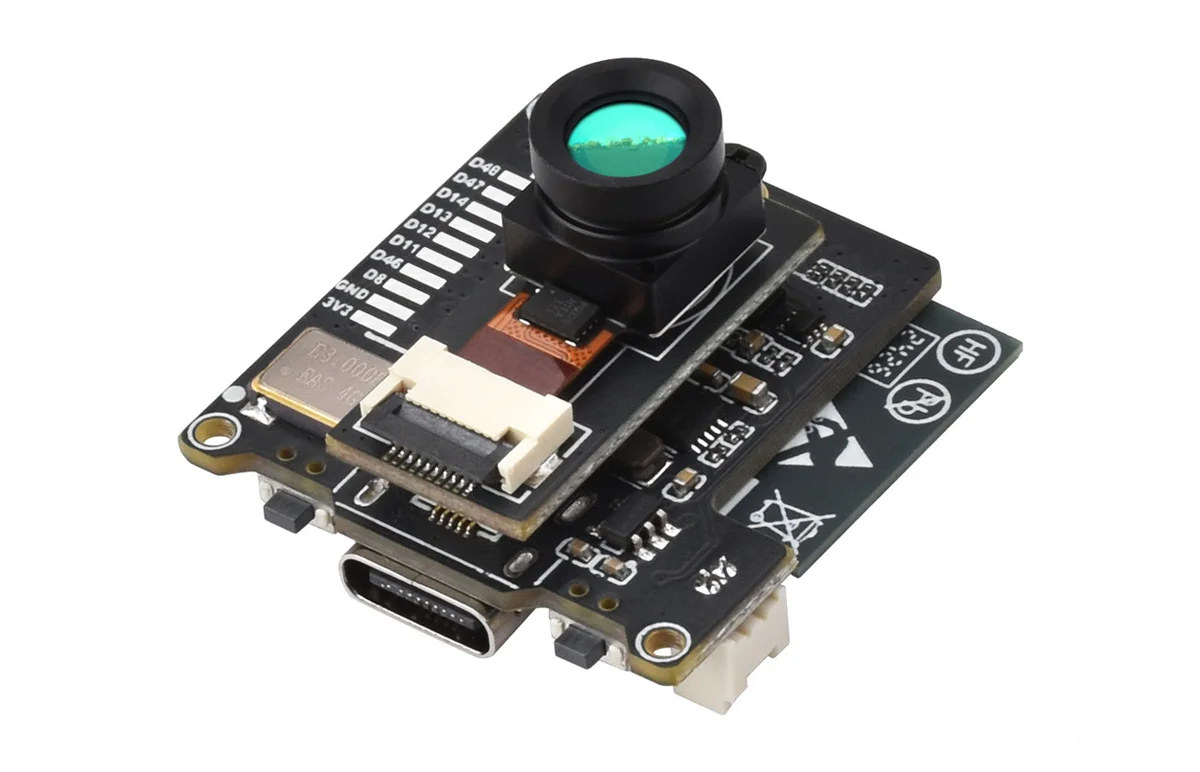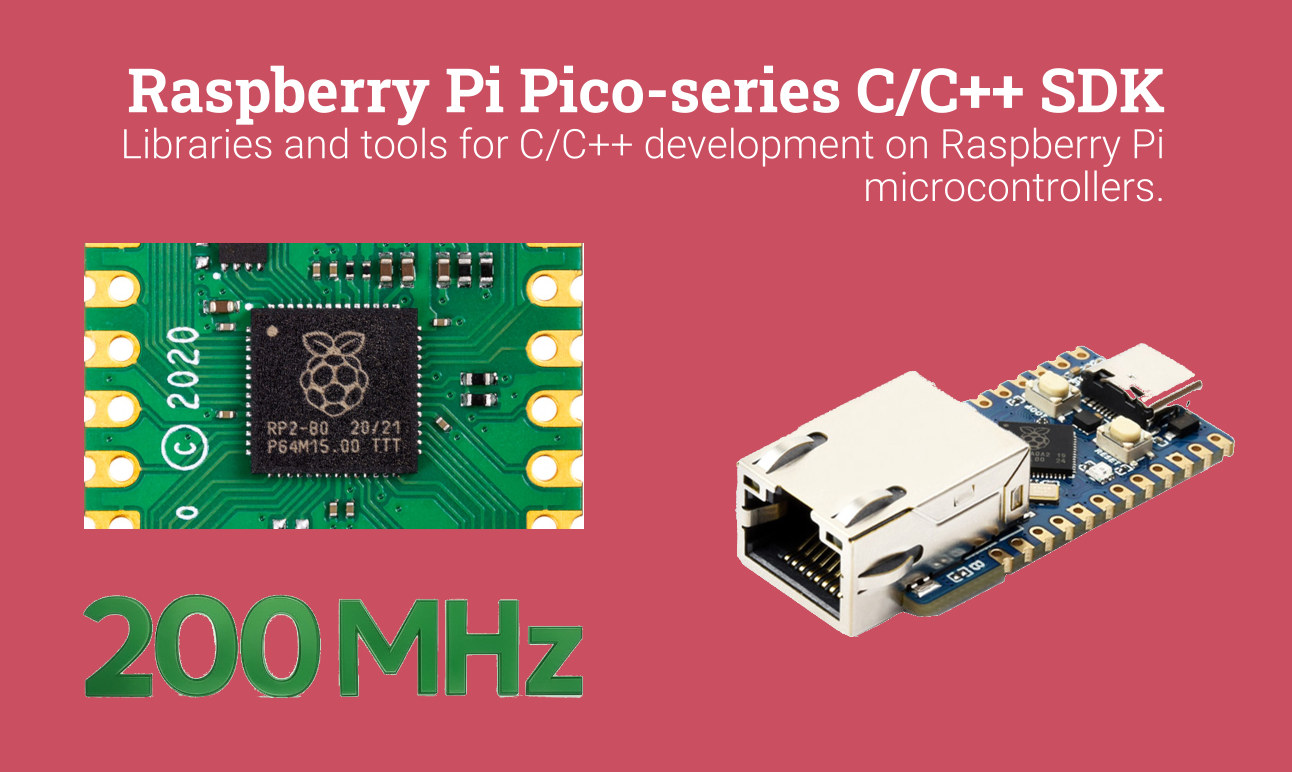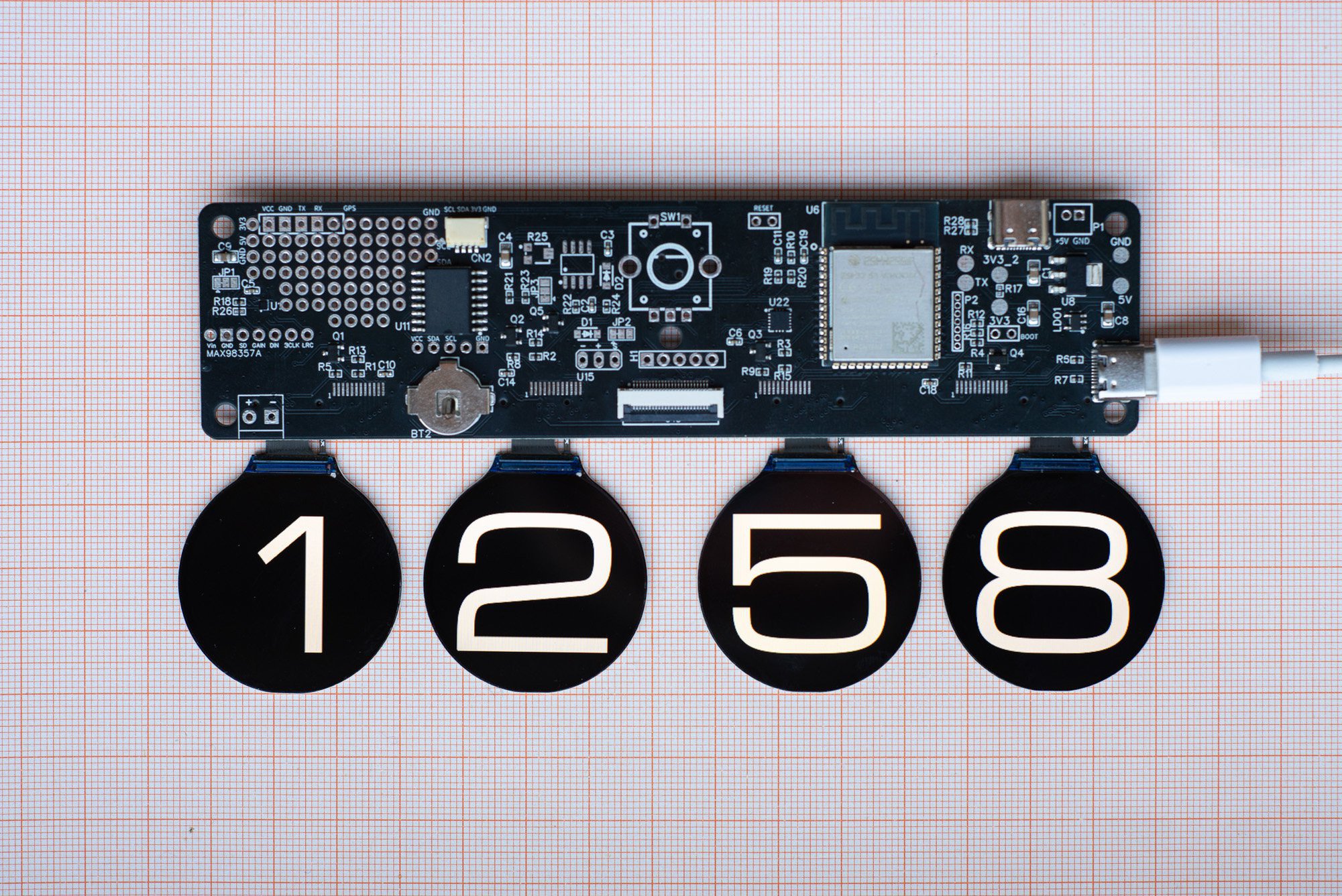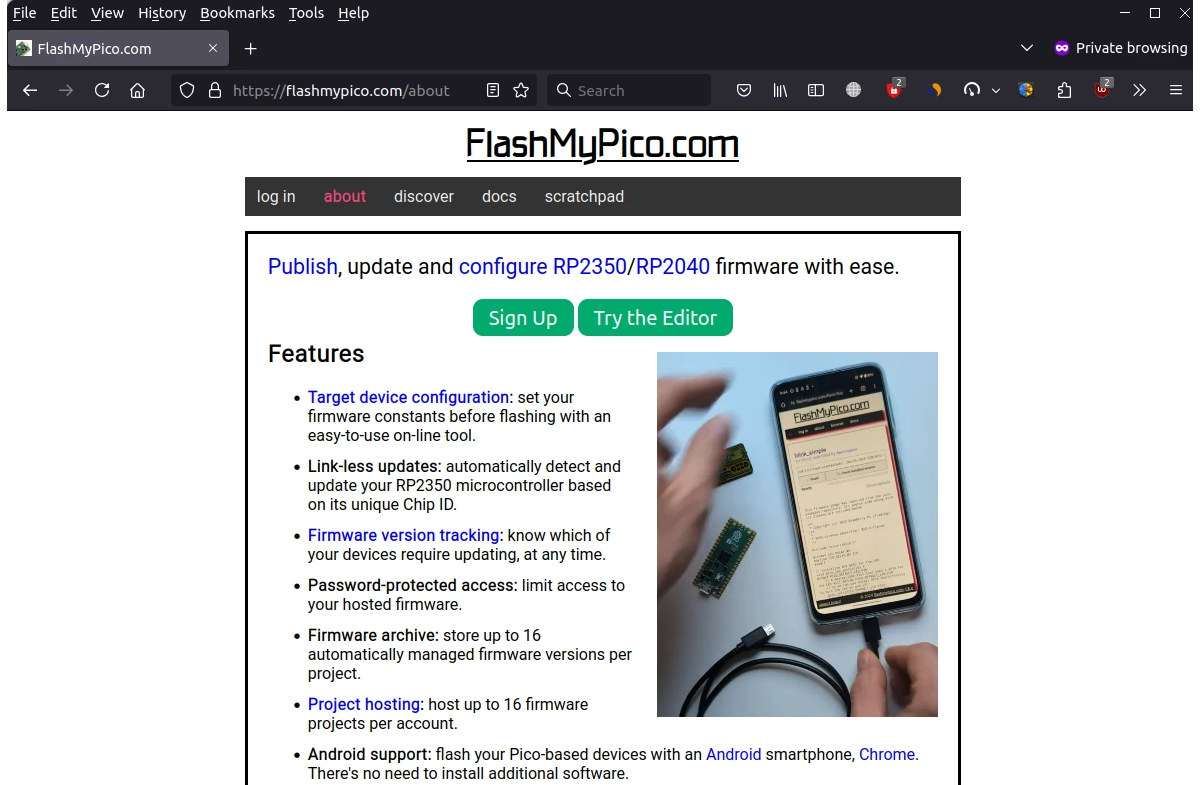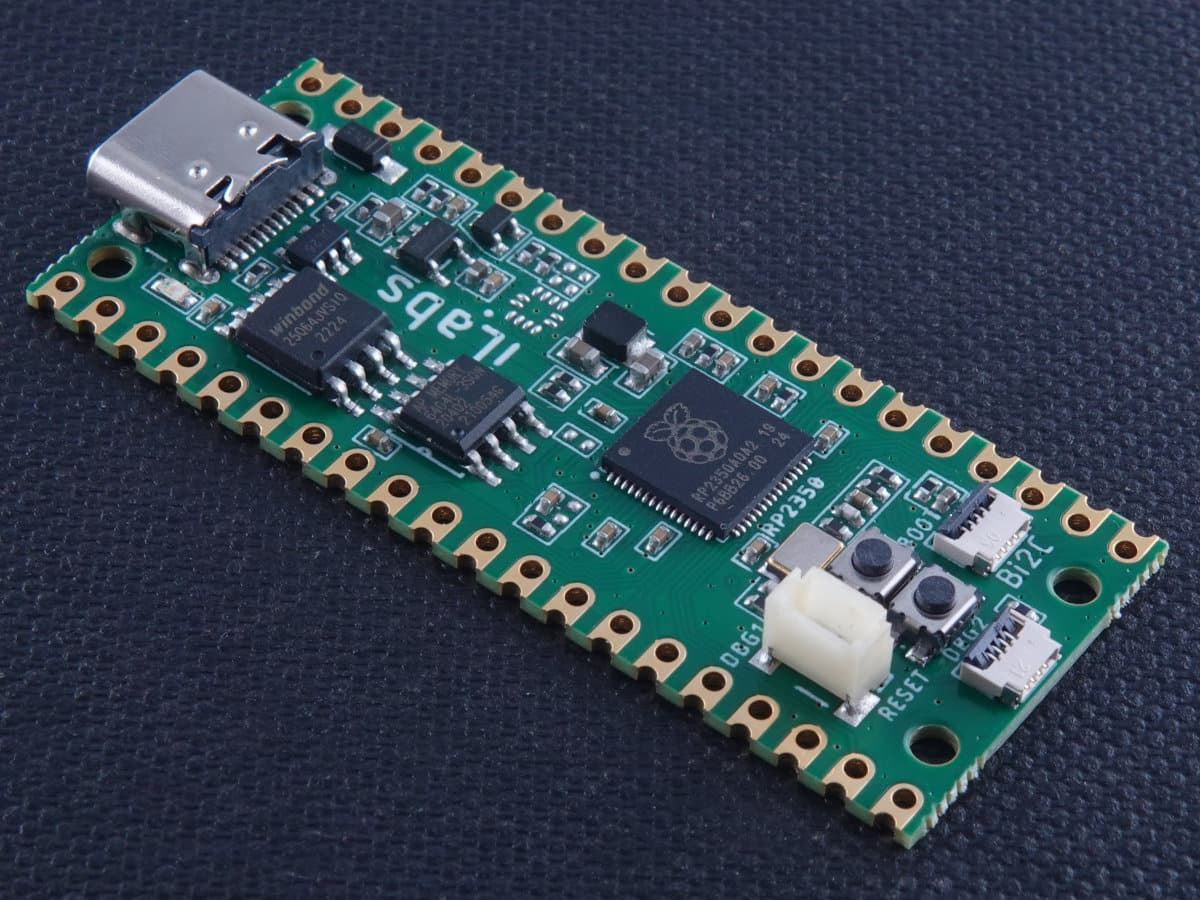Pinetek Networks’ IOL HAT is a Raspberry Pi expansion board using the IO-Link (IEC 61131-9) protocol to interact with industrial sensors. It’s based on the Analog Devices MAX14819 IO-Link master transceiver and offers two SDCI (“Single-Drop Digital Communication”) connectors. While work on the IO-Link communication protocol started in 2006, and the IEC 61131-9 “Single-drop digital communication interface (SDCI) for small sensors and actuators” standard was adopted in 2013, it only recently came onto our radar with products like the STMicro EVLIOL4LSV1 IO-Link actuator board and Renesas CCE4511 IO-Link master and ZSSC3286 IO-Link sensor signal conditioner. The IOL HAT brings the IO-Link standard for industrial IoT communication to the Raspberry Pi. IOL HAT specifications: IO-Link chip – Analog Devices MAX14819 dual IO-Link master transceiver with integrated framers and L+ supply controllers 2x SDCI ports for IEC 61131-9 (IO-Link) sensors and actuators Host connection (one or the other) PT-1201 model – 40-pin […]
ESP32-P4 credit card-sized board features Ethernet, WiFi 6, four USB ports, 40-pin GPIO header, MIPI DSI and CSI connectors
Waveshare ESP32-P4-Module-DEV-KIT credit card-sized board may look like a Linux-powered Raspberry Pi SBC, but instead, it’s based on an “ESP32-P4-Module” comprised of a 400 MHz Espressif ESP32-P4 RISC-V general-purpose microcontroller, an ESP32-C6 “co-processor” for WiFi 6 and Bluetooth 5, and a 16MB SPI NOR flash. Designed for HMI applications, the board offers MIPI DSI and CSI connectors, as well as a 100Mbps Ethernet RJ45 jack, four USB 2.0 ports, a 40-pin GPIO header, and more. It basically integrates the same ports as a Raspberry Pi SBC minus HDMI, but relies on a microcontroller instead of a Linux-capable application processor. Waveshare ESP32-P4-Module-DEV-KIT specifications: ESP32-P4-Module Microcontroller – ESP32-P4NRW32 MCU Dual-core RISC-V microcontroller @ 400 MHz with AI instructions extension and single-precision FPU Single-RISC-V LP (Low-power) MCU core @ up to 40 MHz GPU – 2D Pixel Processing Accelerator (PPA) VPU – H.264 and JPEG codecs support Memory – 768 KB HP L2MEM, […]
Geehy G32R501 dual-core Cortex-M52 industrial AI MCU targets industrial and automotive applications
Geehy Semiconductor has introduced the G32R501 Cortex-M52 industrial AI MCU, the industry’s first real-time MCU based on a dual-core Arm Cortex-M52 architecture. Designed for industrial automation, commercial power supplies, and electric vehicles. Back in 2023, we talked about the features and specifications of the Arm Cortex-M52 core, but now Geehy has introduced the G32R501 MCU with AI and DSP capabilities designed for low-cost IoT applications. This MCU features single and double-precision FPUs, an Arm Helium DSP extension, and Geehy’s Zidian Math Instruction Extension for AI/ML tasks and signal processing. It includes 640 KB Flash, 128 KB SRAM, TCM (Tightly Coupled Memory), and a six-channel DMA module for efficient data handling. The MCU also features three 12-bit ADCs (3.45 MSPS), seven 12-bit DAC comparators, and Σ-Δ filter modules to improve signal accuracy, making it ideal for motor control and real-time monitoring. With 16 high-resolution PWM channels (150-ps resolution), quadrature encoder modules, […]
ESP32-S3 infrared thermal imaging camera module offers 80×62 resolution, 45° and 90° wide angle versions
Waveshare has launched an ESP32-S3-based thermal imaging camera module based on the same 80 x 62 infrared camera found in its Thermal-45/90 camera Raspberry Pi HAT and Thermal-45/90 USB camera. The thermal camera module is offered with two field of views, namely 45° for the basic version and 90° for the wide angle variant, twenty solder pads with GPIOs, UART, and I2C for expansion, a USB-C port for power and programming, and a 2-pin header to connect a battery if required. Waveshare “ESP32-S3 IR thermal imaging camera module” specifications: Wireless Module ESP32-S3-WROOM-1 MCU – ESP32-S3 dual-core Tensilica LX7 up to 240 MHz with 512KB SRAM, up to 8MB PSRAM Storage – 16MB flash Wireless – WiFi 4 and Bluetooth LE 5 Thermal Camera – Meridian Innovation MI0802 Resolution – 80 × 62 Field of View (FOV) 56°(D) x 45°(H) x 34°(V) (Baisc version) 122°(D) x 90°(H) x 67°(V) (Wide angle […]
Raspberry Pi Pico SDK 2.1.1 release adds 200MHz clock option for RP2040, various Waveshare boards, new code samples
The Raspberry Pi Pico SDK 2.1.1 has just been released with official 200 MHz clock support for the Raspberry Pi RP2040 MCU, several new boards mostly from Waveshare, but also one from Sparkfun, as well as new code samples, and other small changes. Raspberry Pi RP2040 gets official 200 MHz clock support When the Raspberry Pi RP2040 was first released along with Raspberry Pi Pico in 2021, we were told the default frequency was 48 MHz, but the microcontroller could also run up to 133 MHz. Eventually, I think the Cortex-M0+ cores were clocked at 125 MHz by default, although some projects (e.g. PicoDVI) would boost the frequency up to 252 MHz. Frequencies higher than 133 Mhz were not officially supported so far, but the Pico SDK 2.1.1 changes that since the Raspberry Pi RP2040 has now been certified to run at a system clock of 200MHz when using a […]
QuadClock PCB – An ESP32-S3 multi-display clock controller for DIY enthusiasts
The QuadClock PCB is an ESP32-S3-powered multi-display clock controller designed to serve as a foundation for creating a four-TFT-display clock. It supports up to four 1.69-inch rectangular TFT displays (240×280) or four 1.28” round displays (240×240). It manages essential functions such as driving the displays and maintaining precise time, allowing you to focus on crafting a unique enclosure or integrating additional features. It is open-source and is powered by the ESP32-WROOM-1 module with up to 16MB flash and 2MB PSRAM. It supports independent brightness control for each mounted display via four MOSFETs and includes an onboard real-time clock with a backup battery for accurate timekeeping. The QuadClock PCB is designed for enthusiasts and makers interested in creating multi-display clock projects. It can also be used for stock tickers, weather displays, and smart home dashboards. We previously covered the 2×2 Quad Display board with either Raspberry Pi Pico W or ESP32-S3-WROOM-1 […]
FlashMyPico – Raspberry Pi Pico / Pico 2 code editing and firmware flashing from a web browser
FlashMyPico website allows you to write C code, build the firmware, and flash it to your Raspberry Pi Pico, Pico W, Pico 2, or Pico 2 W directly from a web browser instead of having to check out the code from GitHub, build it in a terminal, and then manually copy the resulting binary. I’ve given it a quick with a Raspberry Pi Pico 2 board. The first step is to head over to flashmypico.com from your computer or even an Android smartphone. You’ll need a web browser that supports WebUSB, so for example, Firefox is not an option, and I eventually had to use Google Chrome instead. There’s a detect device link on the bottom left, so I clicked on that first, and my Raspberry Pi Pico 2 was detected as “RP2350 Boot” after I put it in bootloader mode. But it just told me that my board is […]
CPico RP2350 is another Raspberry Pi Pico 2 alternative with USB-C, 8MB flash, 2MB PSRAM, BConnect I2C & debug ports
iLabs CPico RP2350 is a Raspberry Pi Pico 2 alternative with the same form factor, still based on the Raspberry Pi RP2350 microcontroller but equipped with a USB-C port, 8MB flash, 2MB PSRAM, a Reset button, and Bconnect I2C and debug ports. Apart from that, the CPico RP2350 retains the other features of the Raspberry Pi Pico 2 including the two 20-pin PGIO headers, and BOOT button. It joins other Raspberry Pi Pico 2 alternatives like the Waveshare RP2350-Plus adding battery support. CPico RP2350 specifications: SoC – Raspberry Pi RP2350 CPU Dual-core Arm Cortex-M33 @ 150 MHz with Arm Trustzone, Secure boot Dual-core RISC-V Hazard3 @ 150 MHz Up two cores can be used at any given time Memory – 520 KB on-chip SRAM Security 8KB of anti-fuse OTP for key storage Secure boot (Arm only) SHA-256 acceleration Hardware TRNG Fast glitch detectors Package – QFN-60 Memory – 2 MP […]


